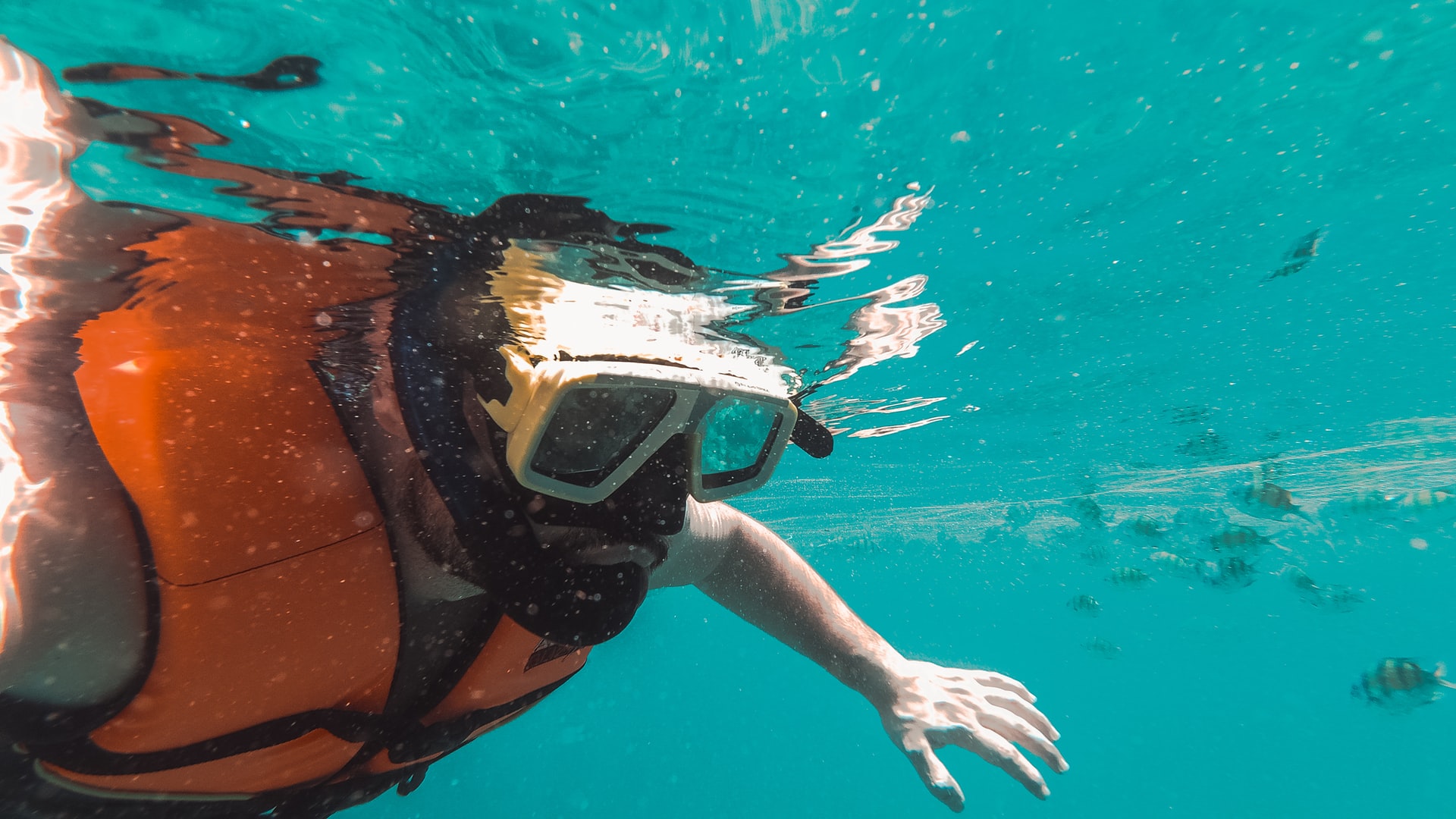If you’re planning a vacation and are lucky enough to be visiting somewhere with clear tropical waters, snorkeling could be the perfect way for you to get a look at the fascinating life beneath the surface.
But if you’re a non-swimmer, you might be worried that you won’t be able to take part and will miss out on this experience.
We’re going to see that while non-swimmers can go snorkeling, you do need to be sensible in what you attempt to stay safe.
You’ll learn that with caution, safety equipment, and probably some assistance, you can definitely have a go at snorkeling if you want to.
We’ll consider the potential areas for problems and how you can reduce them if you get a little swimming confidence beforehand to help you maximize your enjoyment of this pastime.
- Can Non-Swimmers Go Snorkeling?
- Is Snorkeling More Dangerous for Non-Swimmers?
- Is Snorkeling Safe for Non-Swimmers if They Can Stand in the Water?
- Do Non-Swimmers Need Special Equipment for Snorkeling?
- Do I Need a Snorkeling Guide if I’m a Non-Swimmer?
- 9 Tips for Non-Swimmers Interested in Snorkeling
- Conclusion
- You Might Also Like…
Disclosure: this post contains affiliate links (clearly marked with ), which means we may earn a commission if you buy something through them, at no additional cost to you.
Can Non-Swimmers Go Snorkeling?
Yes, non-swimmers can snorkel.
Using flotation devices, not visiting areas with strong currents, and perhaps by taking part in organized trips with a guide to assist, non-swimmers can go snorkeling.
But we will get to all that shortly because the most important thing to consider is your safety and enjoyment, and a lot of that will have to do with how you answer this question:
What exactly do you mean by a “non-swimmer”?
Do you mean you can’t swim at all, or is it that you’re not a strong or relaxed swimmer or perhaps don’t swim often?
There’s going to be a big difference in comfort levels in and around the water between a complete non-swimmer and someone who isn’t great at it but can manage a little dog paddle and float.
If you’re a complete non-swimmer, you might have confidence issues in the water, irrespective of whether you’re kept afloat by a snorkel vest or life jacket.
If you’re nervous already, adding in wearing the mask and breathing through the snorkel with all their potential stresses might make you find the whole event too much to handle enjoyably.
So if you’re a complete 100% non-swimmer and feel nervous, we’d ideally recommend taking at least some basic pool swimming lessons first to gain some confidence and swim skills so that you can stay safe and enjoy the experience.
It also possible, even for swimmers, to take specific snorkel lessons with an instructor to build up their skills.
However, with a flotation device, and a buddy, non-swimmers can have a go.
Just make sure you don’t overdo it and follow our tips below to help you stay safe.
If you’re not a great swimmer but have some skills, and you’re willing to give it a try, then you’re going to find snorkeling enjoyable so long as you apply some common sense.
You have to understand that you’ll need to practice a little to get proficient and accept that you might be limited, to begin with, in what you can do.
Remember that snorkeling for beginners is a surface activity.
While it’s possible to duck dive under the water, this is best left until you’ve gained a bit more experience.
When snorkeling, you’ll propel yourself along the surface with your fins (aka flippers) with gentle kicks.
You don’t usually use your arms for movement as they’re far less efficient than the relatively large fins.
Keep your hands for pointing out something interesting to your buddy or for underwater hand signals.
So the only specific swimming skills you’ll use are gentle leg kicks, and you’ll use either a flutter kick or a frog kick.
It can take a little practice to get used to the fins, but most people get the hang of it sufficiently quite quickly.
But you do need to be comfortable enough, especially in water that’s too deep to stand in, so that you can float safely if you need to rest.
Is Snorkeling More Dangerous for Non-Swimmers?
Ultimately the answer to this question is yes.
A complete non-swimmer is more likely to have an accident while snorkeling than someone proficient.
However, by being sensible, you can reduce the risks to a rational level.
Non-swimmers should always stay in protected areas that don’t have currents that could carry them away from the exit point.
They should always wear a life jacket or snorkel vest to keep them buoyant and always snorkel with a buddy close by (preferably a stronger swimmer).
Don’t go past your comfort level, for example, into deep water, as the onset of panic can make it more challenging to stay safe.
Is Snorkeling Safe for Non-Swimmers if They Can Stand in the Water?
Water that you can stand in is the perfect palace to try snorkeling for the first time, gain confidence, and practice with your mask and snorkel.
You might even want to have a go in a shallow swimming pool if you feel more comfortable there.
Remember that salt water is more buoyant, so it’s easier to float in than a freshwater pool, so actually, the sea can be more straightforward and have something interesting to look at.
You just have to get used to the salt.
Wherever you start, it’s generally safer in water you can stand in as if you begin to feel uncomfortable, get tired, or have problems with water in your mask or snorkel; you can put your feet down and fix the problem.
However, you have to remember that it’s possible to drown in even very shallow water.
A floatation device like a snorkel vest must always be used for a non-swimmer, even in water they can stand in, and they should always be with a buddy to assist.
Do Non-Swimmers Need Special Equipment for Snorkeling?
A non-swimmer must always wear a floatation device like a life jacket or a snorkel vest.
Experienced snorkelers might keep their snorkel vest uninflated just to have it there if they need buoyancy in an emergency.
However for a non-swimmer, the vest should be inflated before they enter the water, or they should use a permanently buoyant life jacket.
Jackets and vests help keep your body afloat, and if you’re a non-swimmer, they’ll help you feel more comfortable.
On guided snorkel trips there will also often be a snorkel float such as a rescue ring with the guide, and you can hold onto this for added safety and comfort.
Beginners, including non-swimmers, often find traditional masks and snorkels challenging to use.
While they are very efficient, they can take a bit of getting used to, and so a non-swimmer might find the full-face style snorkel masks more comfortable and confidence-inspiring.
This kind of full-face mask must fit perfectly, so take the time to make sure that yours does before getting in the water.
Do I Need a Snorkeling Guide if I’m a Non-Swimmer?
A good snorkel guide will add a considerable amount to your trip and is definitely recommended for non-swimmers.
Your guide will be able to give you hints and tips on how to use the mask, snorkel, and fins, will point out the exciting sights, be able to tell you the name of the fish you’ve spotted, and most importantly, can keep an expert eye on you and assist if necessary.
Beginners and especially non-swimmers will get a confidence boost by going with a guide, and they’ll usually be carrying a snorkel float like a rescue ring in the water so you can grab on for a tow if you get tired.
9 Tips for Non-Swimmers Interested in Snorkeling
1. Consider Taking Basic Swimming Lessons
You’ll find snorkeling more fun if you boost your water confidence by gaining some basic swimming skills.
While you don’t have to be a strong swimmer by any means to enjoy snorkeling, some basic skills will significantly improve your comfort, safety, and enjoyment.
2. Always Wear a Flotation Device
As a non-swimmer, don’t even get near to the water without a floatation device like a life jacket or an inflated snorkel vest to keep you safe.
3. Make Sure You Get Equipment That Fits
Your floatation device must fit correctly, or it might not keep you safe if needed or, at the very least, will be uncomfortable.
Likewise, masks, snorkels, and fins need to fit correctly, or you can find added problems like water getting into the mask to contend with.
4. Start in Shallow Water
Snorkeling in deeper water is possible and can be great fun, but you’ll find it easier to build your confidence in water that you can stand up in.
Do remember that accidents can happen in even shallow water, so take appropriate care.
Make sure that you won’t hurt bottom-dwelling marine life if you do need to stand.
Never stand on coral or other aquatic life as it is easily damaged or killed, and it can also cut or sting you.
5. Practice
The more you practice with the mask, snorkel, and fins, the easier it becomes.
Grow your skills and confidence slowly, and you’ll be enjoying discovering the world under the water in no time.
6. Never Snorkel Alone
You must always snorkel with a buddy, and as a non-swimmer, this is especially important.
Ideally, your buddy should be someone who is a strong swimmer and is practiced at snorkeling so they can give you a hand if needed.
7. Go With a Guide
A professional snorkel guide will keep a watchful eye on you, be able to give you suggestions, help, and assistance, and will generally help make your snorkeling fun and safe.
You’ll find a guide’s local knowledge and experience especially helpful if you’re on holiday to get the most out of the excursion, even if you’re a good swimmer.
8. Stay in Your Comfort Zone
For snorkeling to be enjoyable and safe, make sure that you don’t push yourself too far.
Your buddy will need to be understanding that you need to be comfortable for it to be enjoyable.
If they’re not, find a new one!
As you gain experience and become more proficient, you’ll be able to explore further.
9. Be Aware of Your Surroundings
Make sure that you don’t get too distracted by what’s going on underwater.
Please don’t get too far from the guide, and follow their instructions.
Ensure that you stay close enough to the exit point that you’ll be able to reach it easily with your skill level.
Be a responsible snorkeler and never touch corals or other underwater aquatic life or feed the fish.
Conclusion
So we’ve seen that it is possible for non-swimmers to snorkel so long as they are sensible, don’t try anything too extreme, always wear a flotation device, go with an experienced buddy, and accept some help when needed.
Non-swimmers can enjoy relaxed snorkeling in suitable conditions, but we’d still strongly advise that some basic swimming lessons are taken beforehand to get the most out of the activity.
The more comfortable you are in the water, the safer and more enjoyable your snorkeling will be, and basic swimming skills will help a lot.
You Might Also Like…
-

Can You Drown Snorkeling? 11 Common Reasons (+Helpful Tips)
-

Can I Use Snorkeling Fins for Bodyboarding? Pros & Cons (+6 Tips)
-

What Colors to Avoid When Snorkeling? (& Which You Should Wear)
-

Is It Safe to Fly After Snorkeling? What You Should Know (+4 Tips)
-
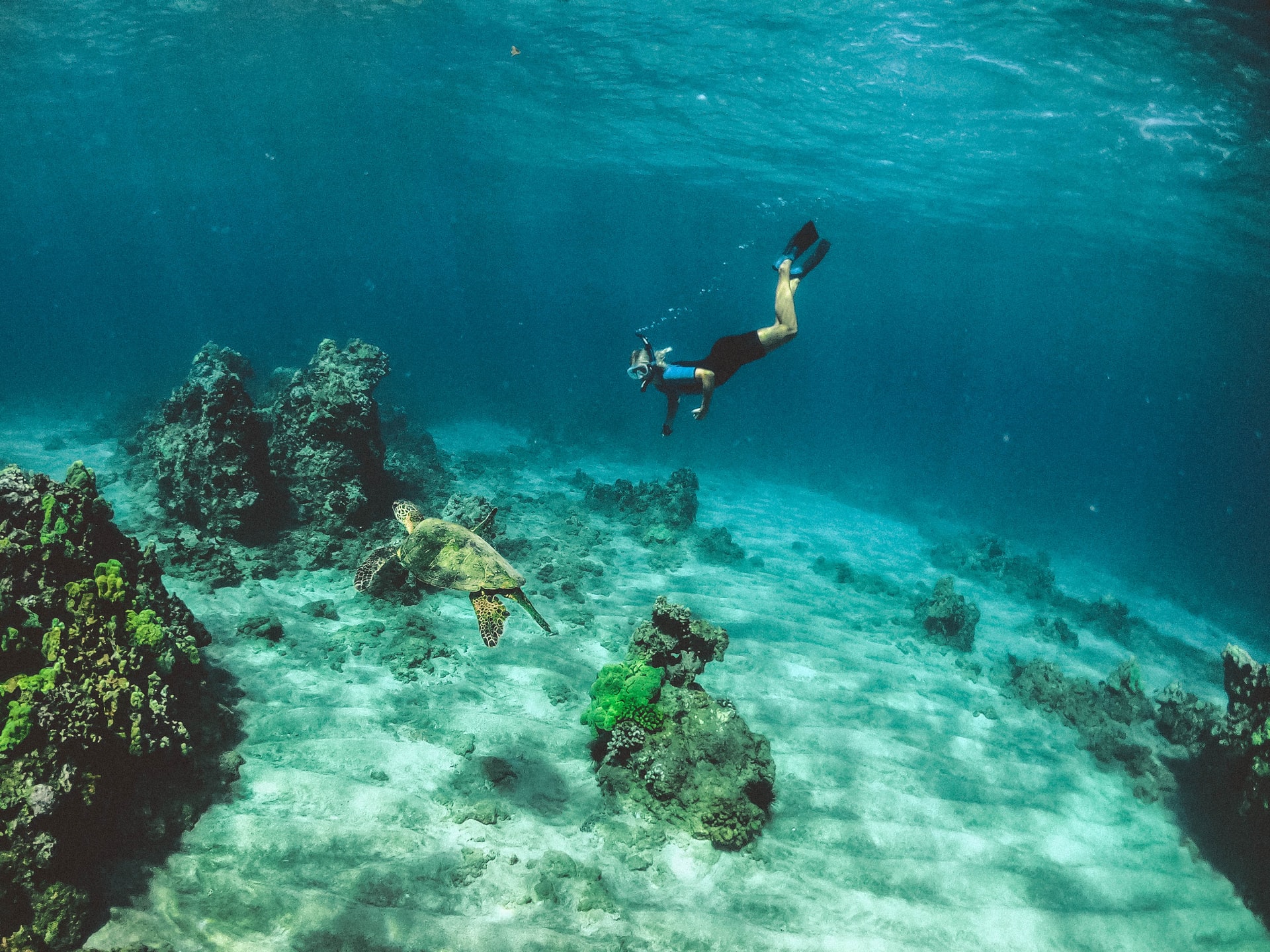
Can’t Hear After Snorkeling? 3 Possible Causes (& Solutions)
-
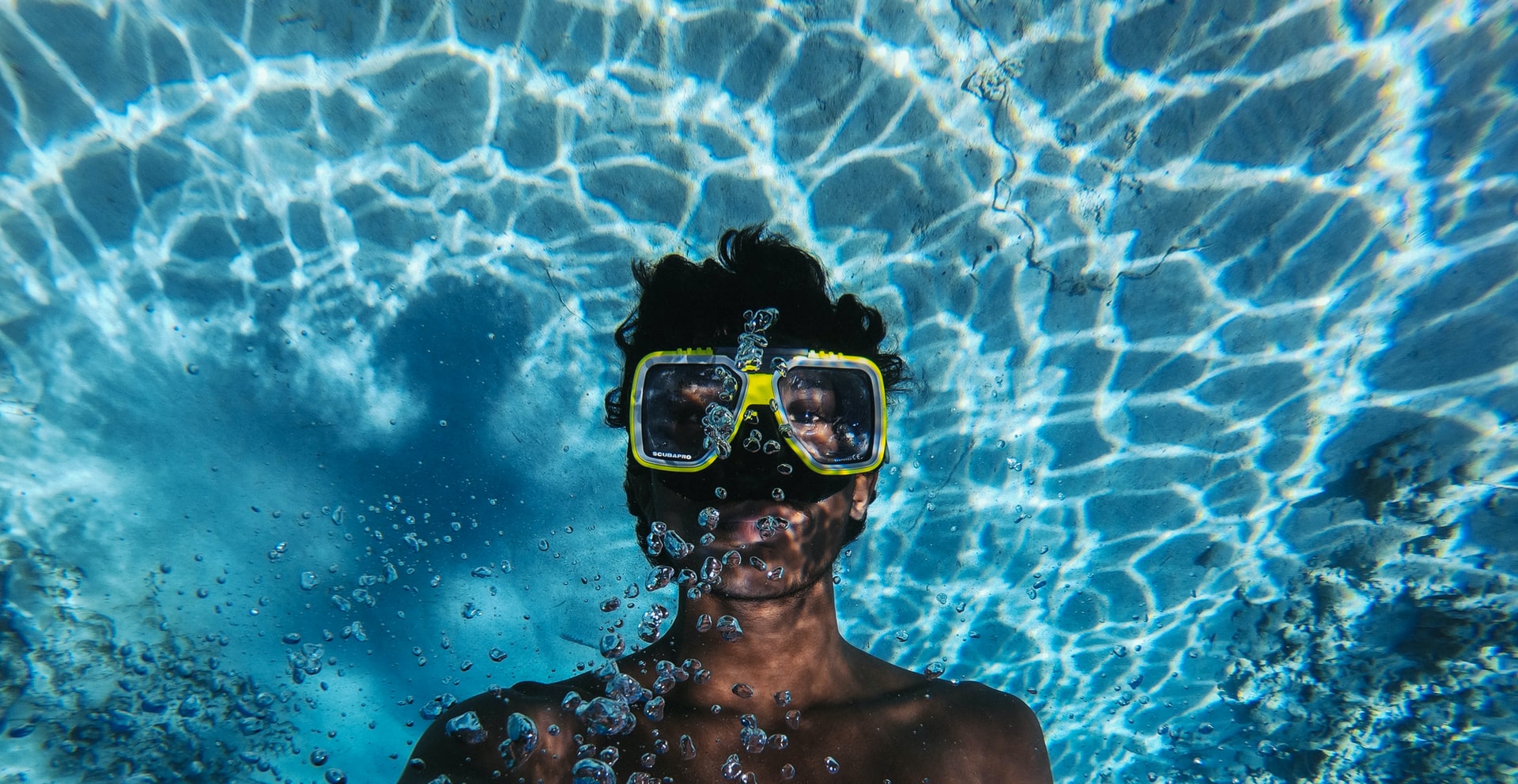
Can Snorkeling Cause a Sinus Infection? (+9 Tips to Avoid It)
-
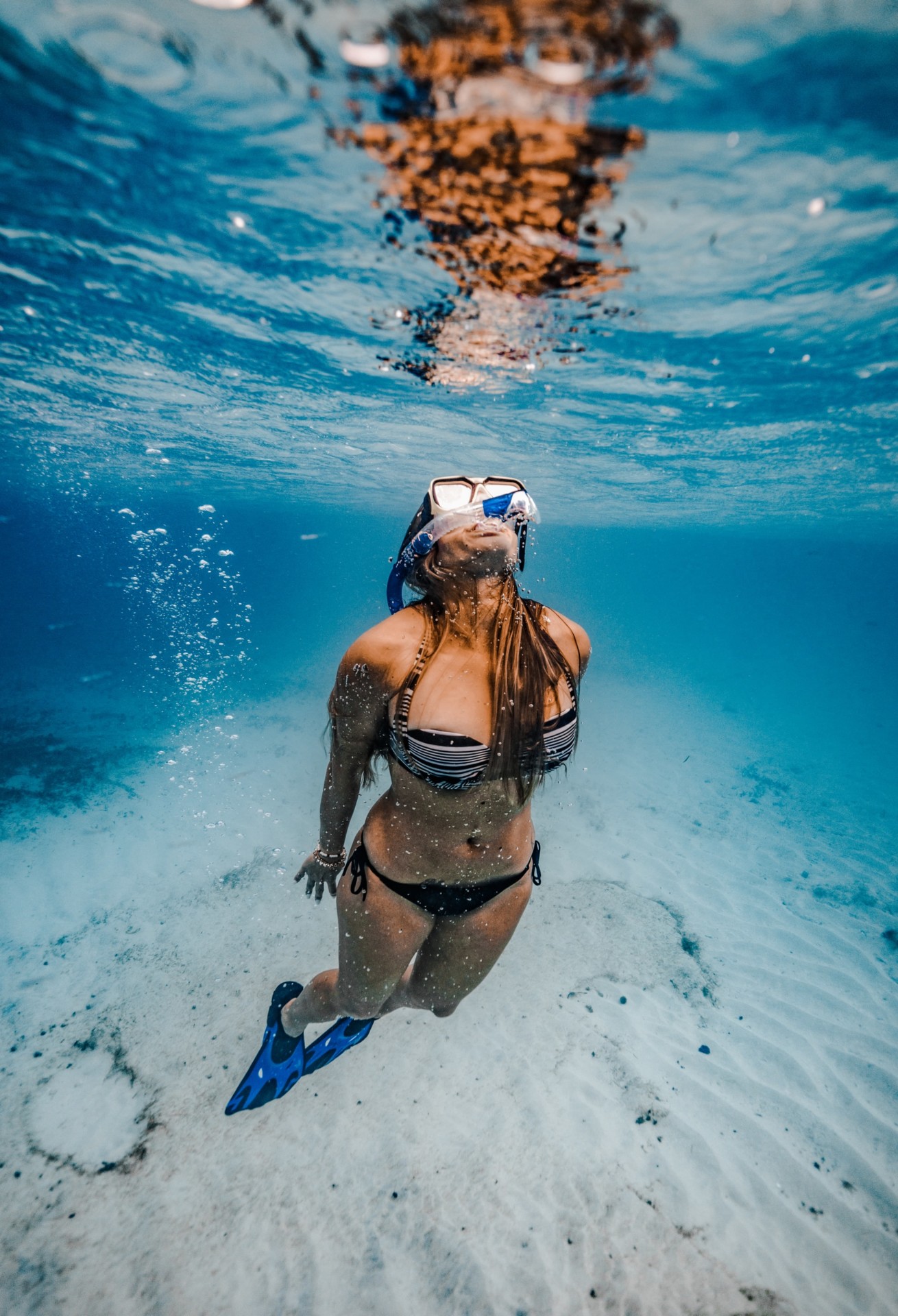
Can Snorkeling Cause a Sore Throat? 8 Common Causes (+Tips)
-
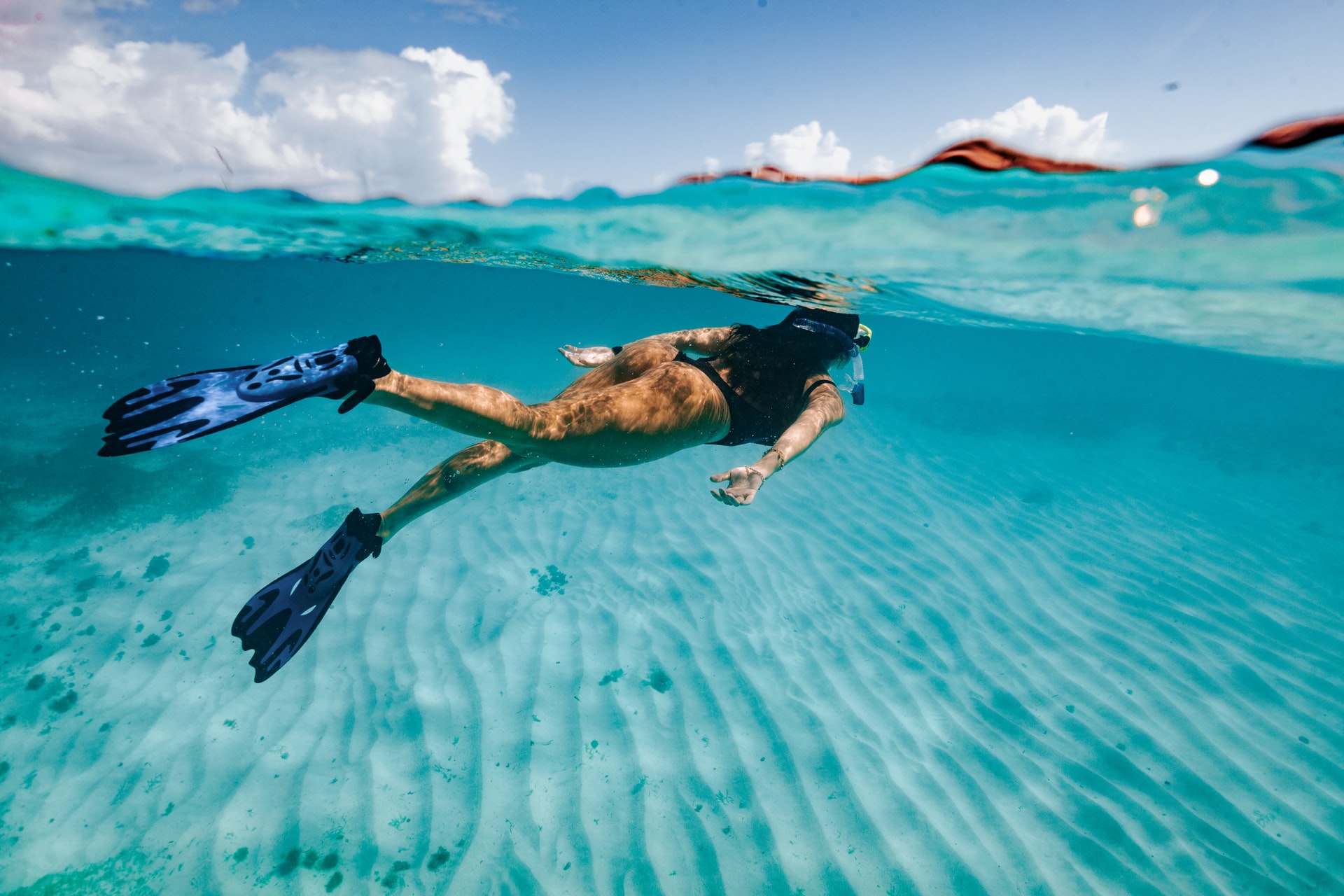
Can Snorkeling Cause Vertigo? (+8 Tips to Avoid It)
-
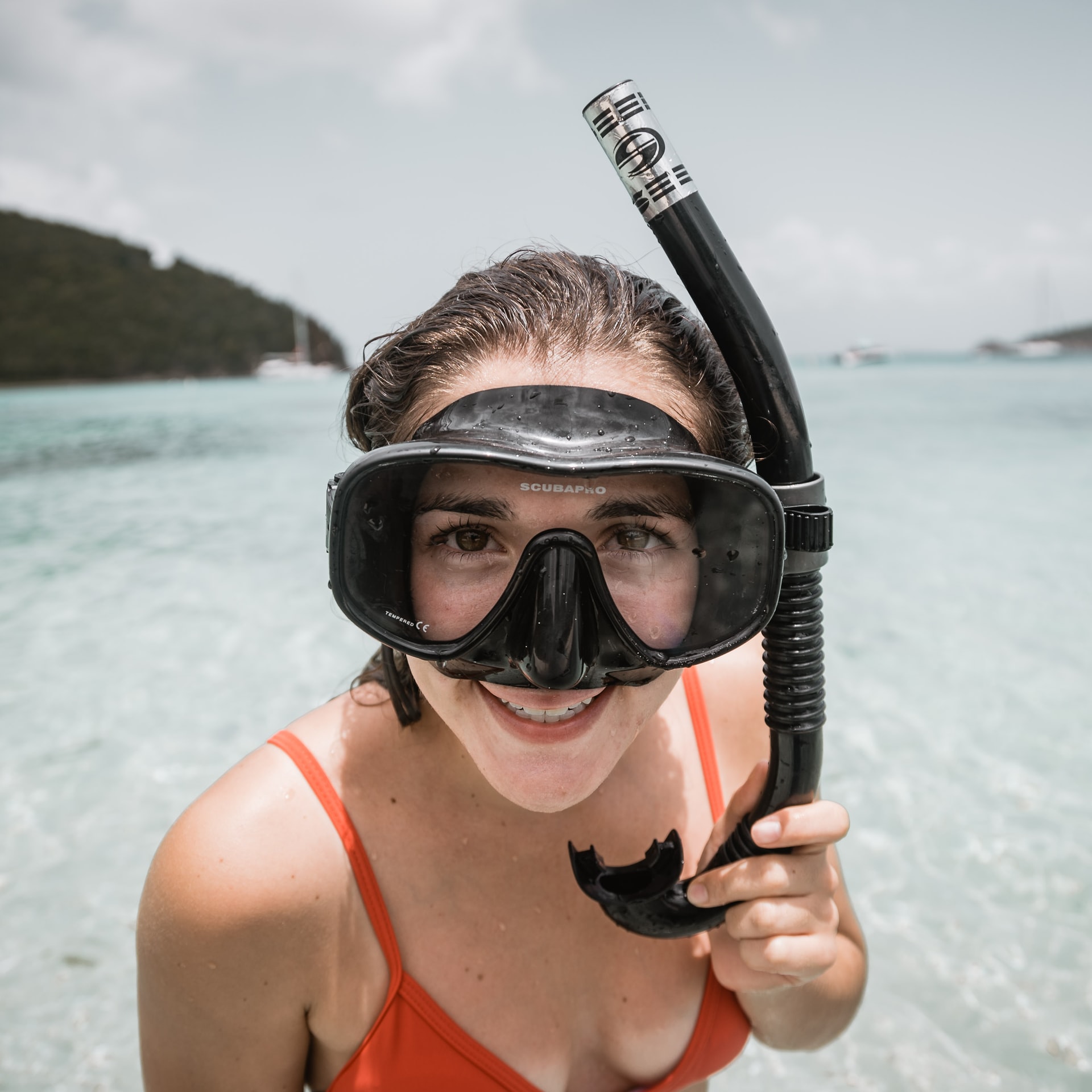
How Do Snorkel Masks Work? (+Regular Vs. Full-Face Masks)
-
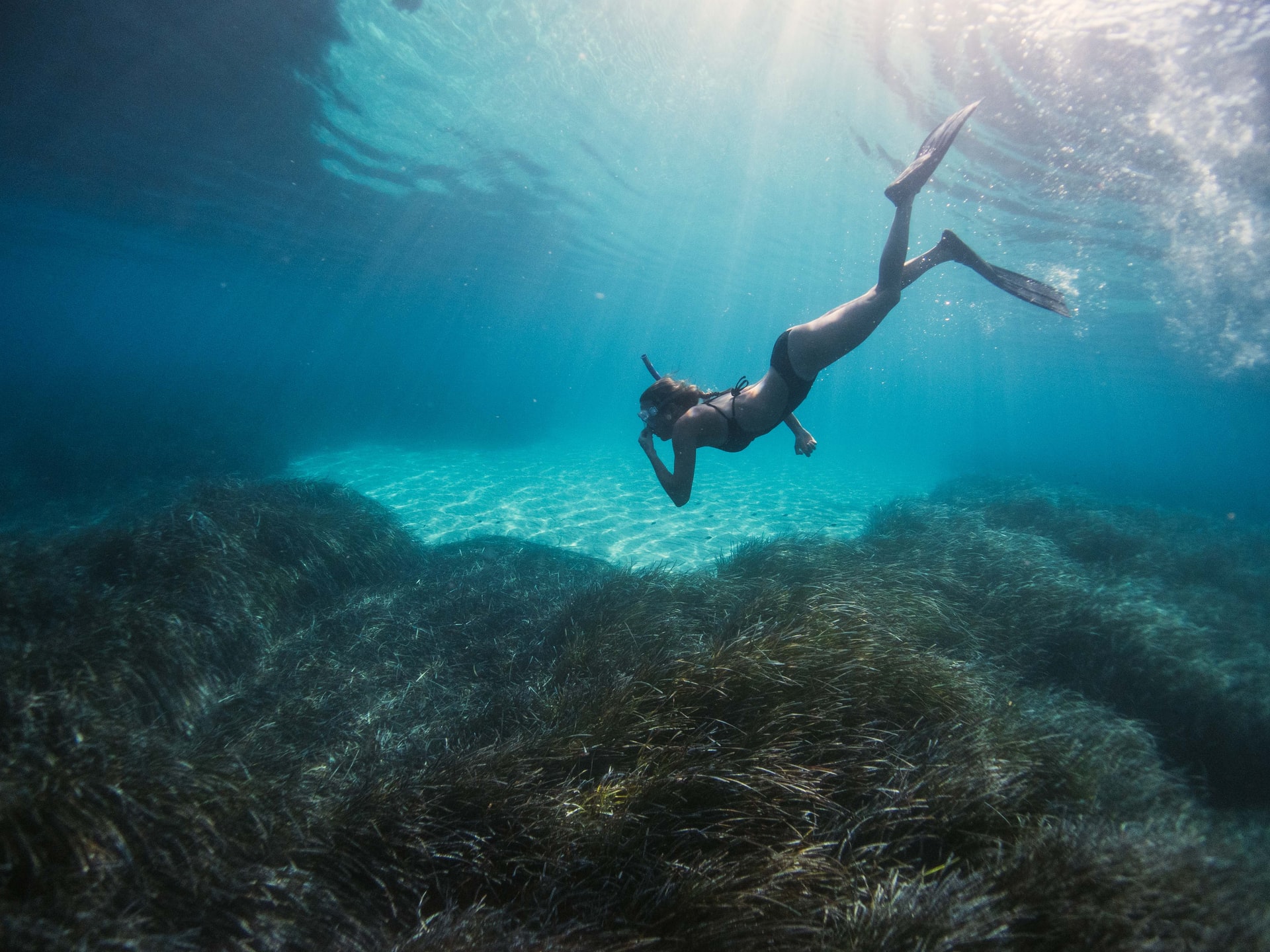
Why Does Snorkeling Make Me Nauseous? (11 Causes & Remedies)
-
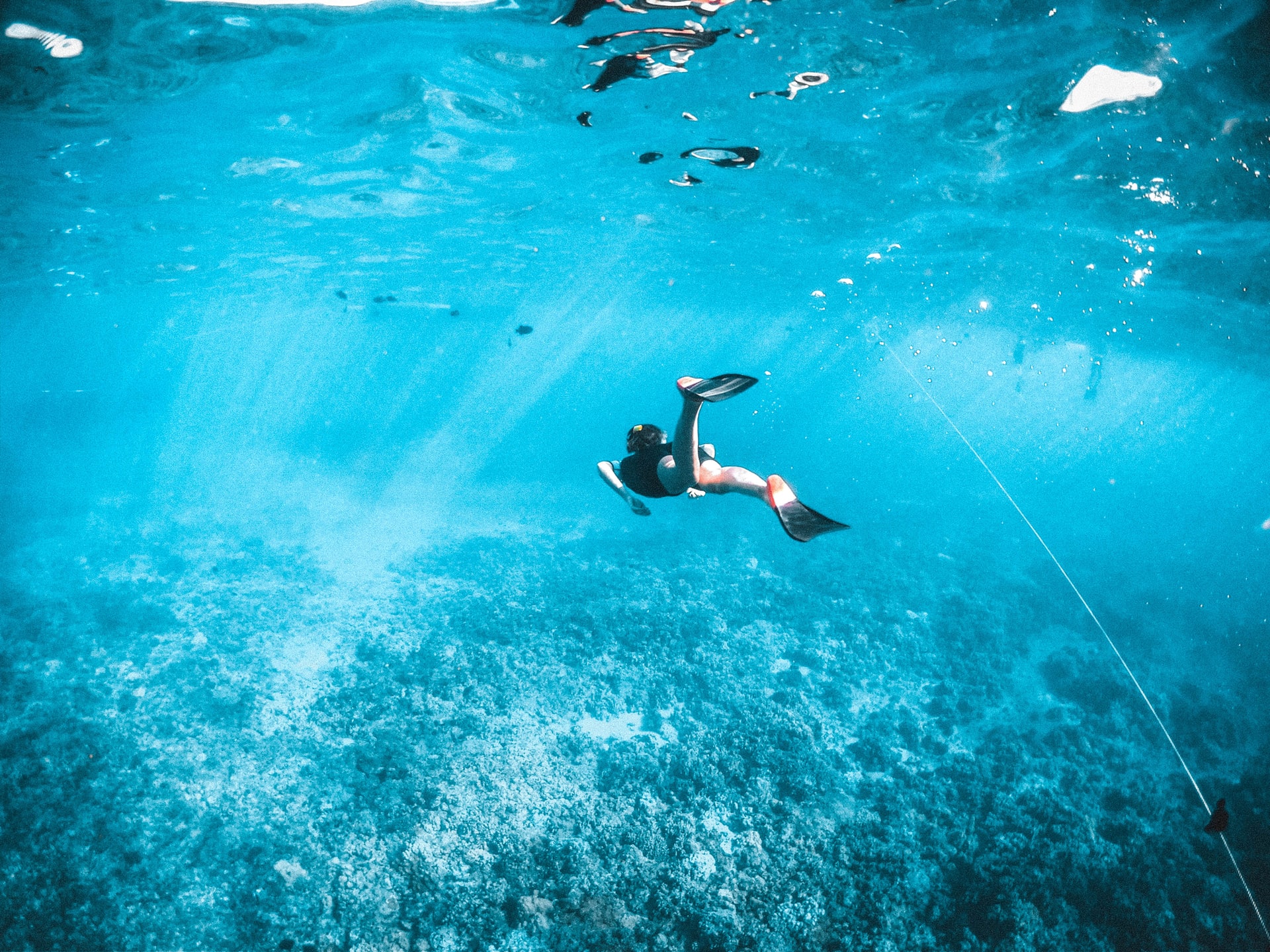
What Does Snorkeling Feel Like? FAQs Answered (for Beginners)
-
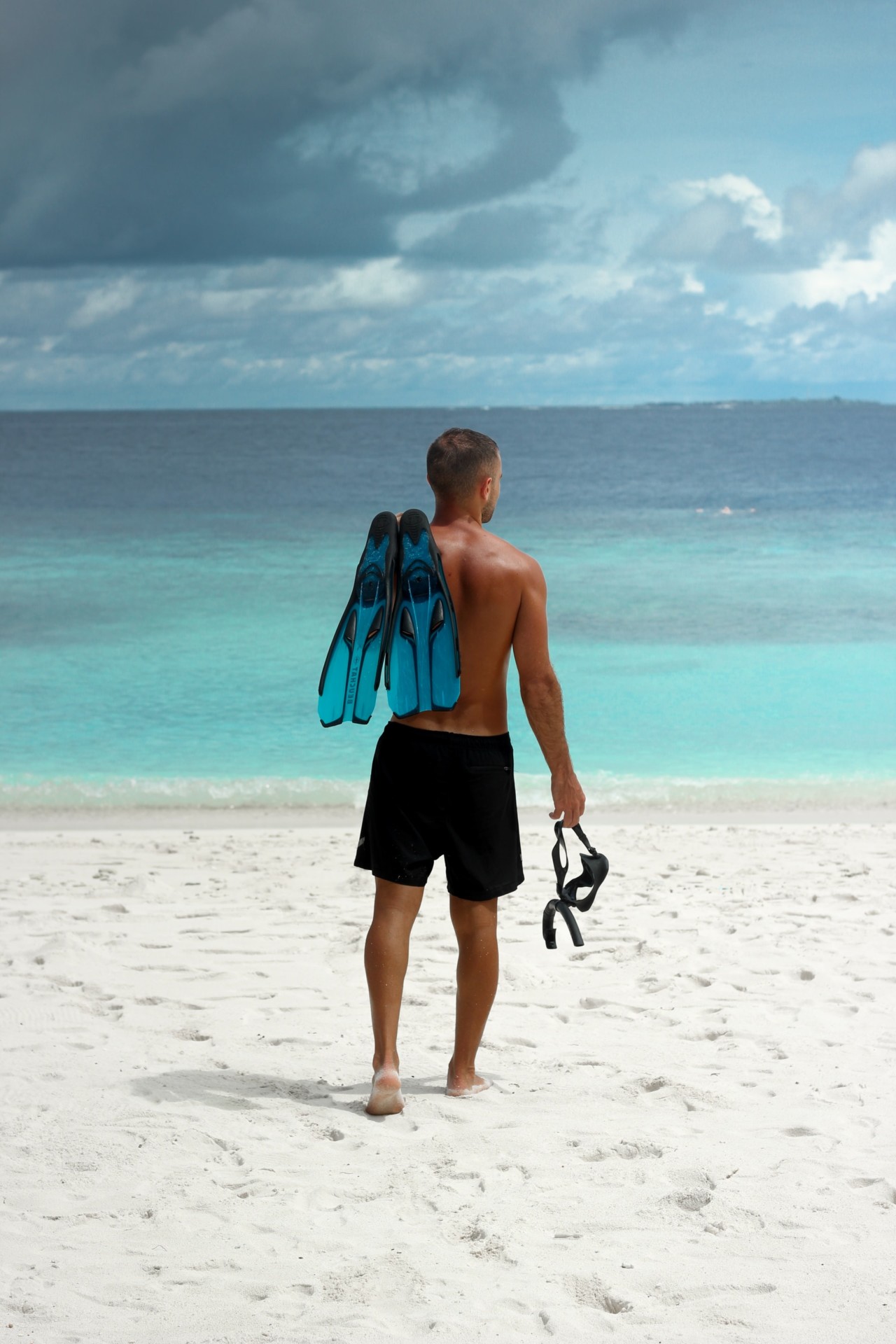
Does Rain Affect Snorkeling Visibility? 4 Ways It Does (+Helpful Tips)

